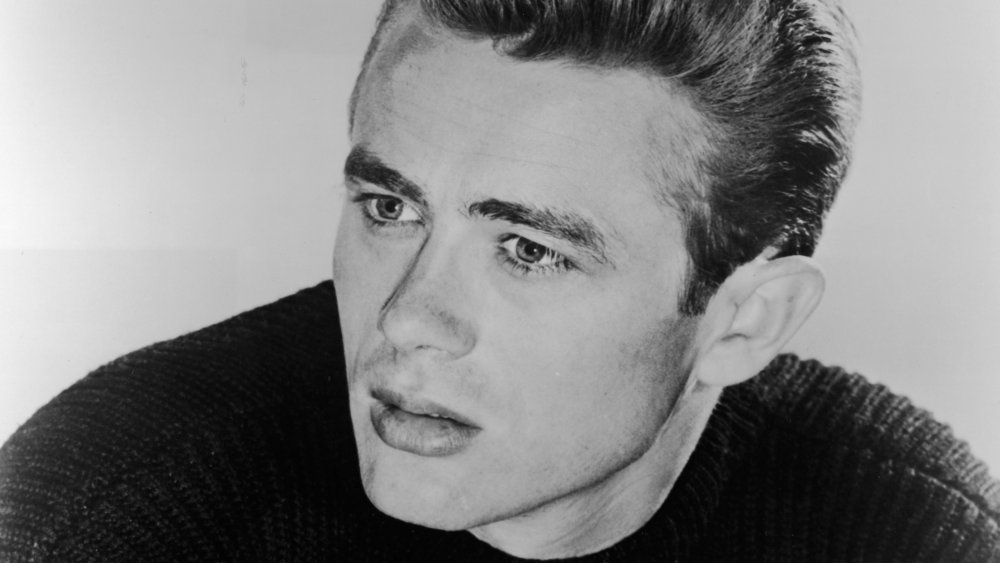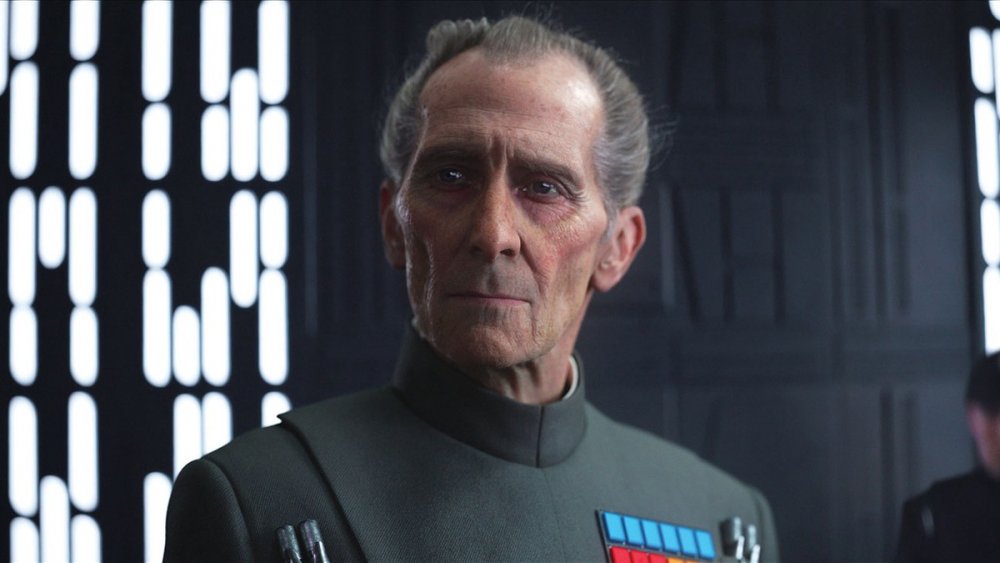The CGI Casting Of James Dean Is Causing An Uproar
James Dean will star in his fourth film, 64 years after his passing... a CGI version of him, that is.
"A realistic version of James Dean" will be inserted into the role of Rogan, a secondary leading part in the upcoming action-drama Finding Jack, according to The Hollywood Reporter. The movie is an adaptation of Gareth Crocker's novel of the same name, and centers on the existence and abandonment of more than 10,000 military dogs following the end of the Vietnam War.
Directed by first-time feature filmmakers Anton Ernst and Tati Golykh, the project will be fielded by the pair's own production house Magic City Films, with pre-production starting on Nov. 17. Two visual effects companies, Canada's Imagine Engine and South Africa's MOI Worldwide, are charged with the responsibility of re-creating the Hollywood icon into full-body CGI. To help bring Dean fully to life, they will use both actual footage and photos; another actor will voice the CGI creation.
"We searched high and low for the perfect [actor] to portray the role of Rogan, which has some extreme complex character arcs, and after months of research, we decided on James Dean," Ernst told THR.
In case you're wondering how on Earth Ernst and Golykh were legally able to make something like this happen, look no further than the Rebel Without a Cause and East of Eden actor's family. The directors confirmed that his relatives had signed off on their use of Dean's image, and it's an approval that the Finding Jack team say they take seriously.
"We feel very honored that his family supports us, and will take every precaution to ensure that his legacy as one of the most epic film stars to date is kept firmly intact," Ernst said "The family views this as his fourth movie, a movie he never got to make. We do not intend to let his fans down."
The casting decision is facing a massive backlash online
The decision to digitally insert Dean, who died at 24 in a 1955 car crash, into their film hasn't been as well received as the directors were apparently expecting — a situation likely worsened by the surreal response of Mark Roesler, CEO of CMG Worldwide, an agency which represents Dean's family as well as the estates of many, many other deceased celebrities. "This opens up a whole new opportunity for many of our clients who are no longer with us," Roesler remarked — and if you can read that sentence without your brain breaking just a little, then you're made of sterner stuff than we are.
Soon after THR reported the news, social media users were quick to voice their annoyance, anger and frustration with everything about the decision — among them celebrities like Dylan Sprouse, Bette Midler, and Chris Evans.
Sprouse, star of the classic Disney Channel series The Suite Life of Zack & Cody alongside his twin brother Cole, angrily quoted Roesler before remarking, "TO BE READ AS: "Found a new way to rob graves of dead icons and milk the masses for less!" in his tweet.
For her part, veteran actress and songstress Midler applied her trademark sarcastic humor in remarking that among many other troublesome aspects of the decision, it didn't exactly strike a blow for representation. "James Dean is being resurrected by CGI to appear in an upcoming movie. Don't ever let anyone tell you things have gotten more difficult for white guys in Hollywood," she tweeted. "Even dead ones can still get a job."
Meanwhile, Evans — you know, Captain America — simply told it exactly like he saw it, which is all we would ever expect of Cap. "I'm sure [Dean would] be thrilled," he tweeted. "This is awful. Maybe we can get a computer to paint us a new Picasso. Or write a couple new John Lennon tunes. The complete lack of understanding here is shameful."
Perhaps the most blunt takedown of the whole endeavor, though, was posted by Zelda Williams, the daughter of the late, great Robin Williams. "I have talked to friends about this for YEARS and no one ever believed me that the industry would stoop this low once tech got better," Williams tweeted. "Publicity stunt or not, this is puppeteering the dead for their 'clout' alone and it sets such an awful precedent for the future of performance."
Plenty of non-industry types voiced their opposition as well, including many who invoked Dean's well-known anti-war stance during his lifetime as being reason enough to leave him out of a film about Vietnam. "I need a full day to lay down and process that they're using James Dean CGI to project him into a Vietnam War movie when he was actively anti-war and would never been in this movie in life," tweeted one. "How soulless and dystopian was the executive making that decision."
While many did offer compelling, funny or thought-provoking takes on the Finding Jack news, there's actually a much simpler argument for why a CGI Dean shouldn't be cast: there are, you know, living actors who could play the part.
Sure, the directors did tell THR that the creative team had looked "high and low" for someone to fill the role, which reinforces the notion that they actually put serious thought into their decision. It's a choice that would have been particularly interesting if they were making, oh, say, a James Dean biopic — but since they're not, we frankly find it to be downright puzzling.
Since the backlash, Ernst has again spoken to THR, sharing that he was "saddened" and "confused" by all of the negative response. "We don't really understand it," he said. "We never intended for this to be a marketing gimmick."
Roesler, apparently speaking on behalf of Dean's family, also went public to defend the decision in the wake of the brouhaha. "James Dean was perhaps the greatest actor of all time and is admired by fans around the world. Despite his untimely death at the age of 24, technology allows us to continue to honor Jimmy's legacy and inspiration to so many people," Roesler told Fox News. "We have represented his family for 38 years, and they are confident that Jimmy's rebellious and trailblazing personality is consistent with being the first to fearlessly embrace this new technology for Hollywood. They are excited to be part of keeping his memory alive."
Was using technology to bring back the dead inevitable?
The temptation to use technology to seemingly bring back to life an iconic personality such as Dean is understandable, but the filmmakers had apparently not taken stock of precedent — because if they had, they would have predicted the backlash. With major advances in technology over the last decade, the industry has started to play more and more with tools that allow artists to defy aging and even death, and the more extreme among these efforts have by and large not gone over well with the public.
Some of the most notable examples are in music. The estates or families of industry legends like Michael Jackson, Tupac, and Amy Winehouse have helped return them to the stage to perform again years, and sometimes even decades, after their passing through holograms — endeavors that many fans have taken issue with, preferring that their favorite artists be left to rest in peace.
Technology is also being used to achieve a similar effect on both the big and small screen. Most recently, Disney reverse-engineered leftover footage from Star Wars Episode VII: The Force Awakens to give Carrie Fisher's Leia a presence in the upcoming Star Wars film, Star Wars Episode IX: The Rise of Skywalker. The Star Wars franchise, incidentally, has been down this road before, famously resurrecting the long-deceased Peter Cushing to "reprise" his role as Grand Moff Tarkin in Rogue One: A Star Wars Story in a brief and widely derided cameo.
Of course, using technology to portray long gone versions of famous actors isn't limited to those no longer with us. Digital de-aging has been a thing in mainstream film for some time now, with Marvel famously using the tech to create younger versions of Michael Douglas and Robert Downey, Jr. — as well as, oddly enough, an older version of Evans (at the conclusion of Avengers: Endgame). Most recently, Martin Scorsese's highly praised The Irishman used the same tech to not only make stars Robert De Niro, Al Pacino, and Joe Pesci look younger, but also sound younger.
Now that the digital trickery cat is out of the bag, it's safe to say that Tinseltown will never quit looking for new applications — and it'd be easy to make a case that resurrecting the dead to shine once again on the silver screen in new, never-before-seen roles was the logical endpoint of said trickery. While the Finding Jack directors' next moves are unclear in light of the backlash, what is clear is that this is a discussion we're going to be having again and again in the years to come.


